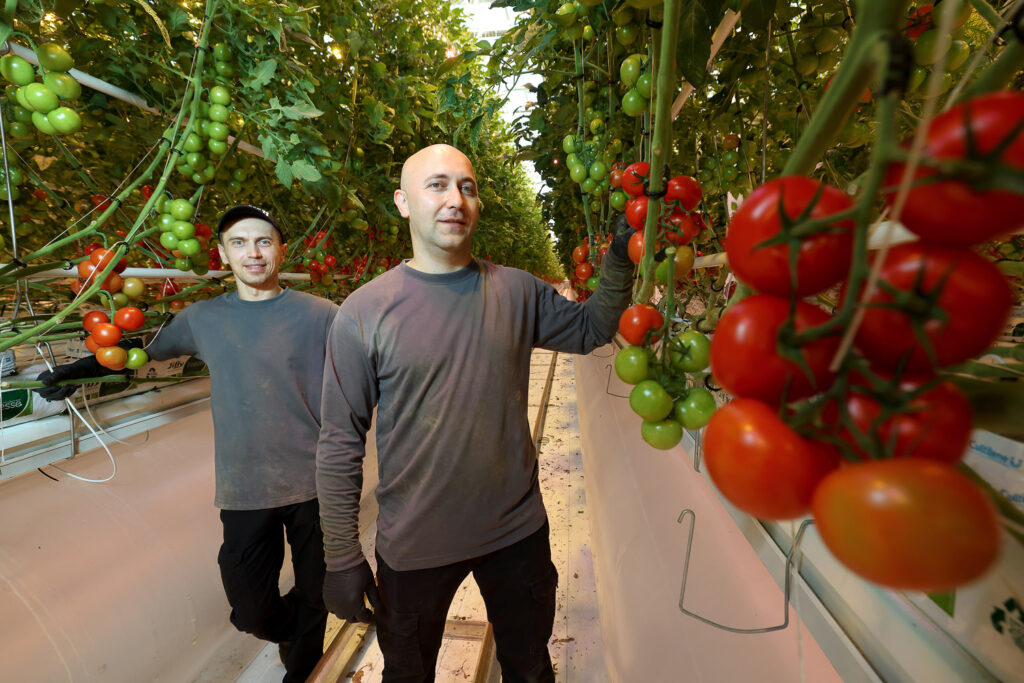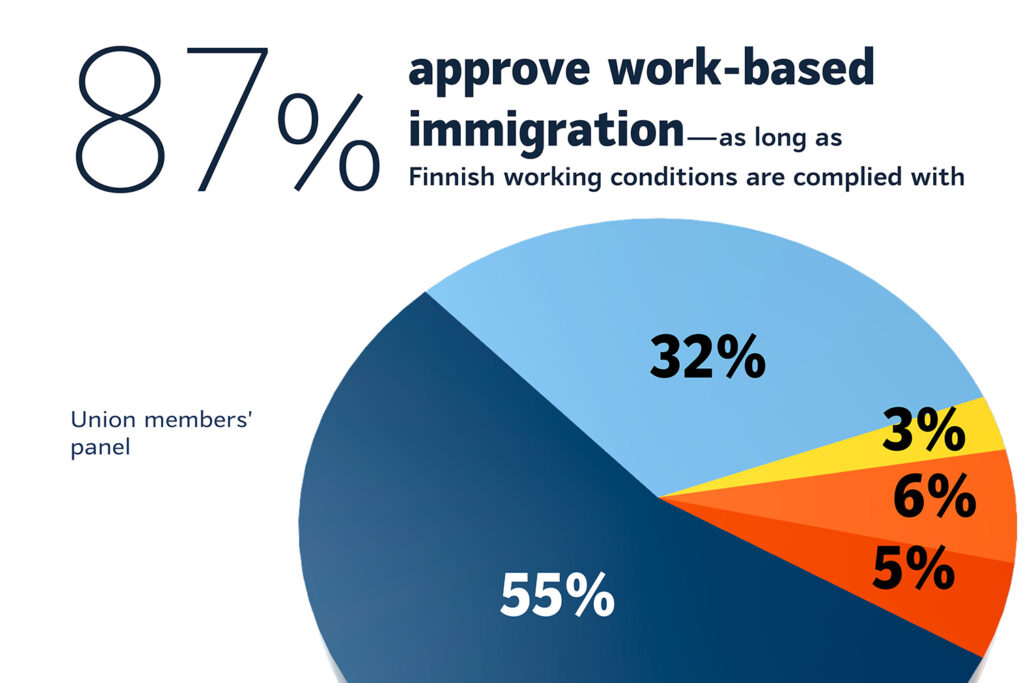Despite language barriers, a friend’s recommendation to join a union makes a difference
Joining the union is easier when a coworker or a familiar shop steward recommends it. Personal contacts are important, and doubly so for immigrants. Climbing over the language barrier is worth it.
Many employees with foreign background don’t speak Finnish well and spend most of their time outside work with people who speak their language. Their knowledge of Finnish society and working life may be scarce, so information about the important work done by the Industrial Union may not reach them through “official channels”. And even if it does, they may have doubts about the benefits of joining — after all, membership costs money. The language barrier raises the bar for joining a union and especially for applying for positions of trust.
“Information in different languages is needed more than ever”

Seinäjoen Puutarha Oy
Greenhouse worker, Seinäjoki
“I’m from Ukraine and moved to Finland just over five years ago, before Russia attacked and the war began. I hope that the war will end and I can return to my home country.
A large majority of employees at my workplace are foreigners, but only about one in three have joined the Industrial Union. Overall, there are a lot of foreigners in the horticulture industry. Many are seasonal workers, which further reduces motivation to join the union.
It’s easier to become a member if you have friends with positive experiences of the union. Back when I joined the union, I did so at the recommendation of a Ukrainian coworker. Today, I’m the chief shop steward and occupational safety representative. I’ve also served as a representative at the Union Congress and attended many courses at the Murikka Institute. I try to make sure that employees look at their payslips and check that everything is paid correctly.
It’d be good to have materials available in many languages that we could hand out to people directly.
The language barrier is a major reason why it is hard to get people of foreign background to join the union. It’d be good to have materials available in many languages that we could hand out to people directly. To some degree, these wishes have been met, and I understand that the matter is a question of resources for the union. Still, we should strive to find ways to make it easier to access information. The fact that the collective agreement is available in Finnish helps greatly. Many people could also be interested in study opportunities and courses offered by the union, but nearly all are in Finnish and seasonal workers may not have the time for them.
While I have not faced discrimination at work, it would be easier to get things done as a Finnish speaker.
It’s hard to say how to get more foreigners to apply to positions of trust. Recently, a course for shop stewards was held in English for the first time at Murikka Institute, which I was really happy to see.”
“It’s worth talking about the benefits of the union even on free time”

Barona Teollisuus Oy / ABB Oy Drives Pitäjänmäki
Assembly worker, Helsinki
“Some coworkers have asked me why I give a part of my pay to the union, saying that the money is wasted and that there’s no need for unions.
I see the membership as a form of insurance. The membership subscription is not that high, and the union gives me support when I need it. I have also received assistance in dealing with the employment authorities when I was unemployed.
I started as a temp agency worker at ABB last year. I would prefer to be employed directly. That way, I would get better pay and my employment would be more secure. Previously, I worked at Valmet Automotive in Uusikaupunki as a direct employee. There, I joined the Industrial Union when my department’s shop steward told me about the union. I probably wouldn’t have joined otherwise.
It is a good idea to talk about the benefits of the union to those who are not members, including outside work and on free time, such as in the sauna or on a picnic. Many people believe their friends’ and acquaintances’ word more readily than strangers.
Many people believe their friends’ and acquaintances’ word more readily than strangers.
I have a great deal of love for Finland. I’m from Nigeria and moved here in 2008. I initially lived with a Finnish family in Valkeakoski and learned a lot from them about the Finnish way of life.
Admittedly, there’s a lot of racism here. For example, I’ve been called the N‑word at a shopping centre. I stayed calm and told the man thank you very much, which made him furious. A woman went to tell the security guard, and the man was escorted out. Even in working life, some managers treat immigrants worse than Finnish employees.
The best things about Finland are the peace and quiet and the fact that not everything revolves around money. It’s also safe here. There is no gap between the rich and the poor as in many other countries, such as the United States or the United Kingdom.”
“Conversations with shop stewards are important”

KONE Industrial Oy Elevator factory
Elevator assembler, Hyvinkää
“I’ve worked at Kone for 35 years, almost the entire time I’ve lived in Finland.
My family and I left Vietnam as refugees, traveling through Cambodia to Thailand, where we stayed in a refugee camp. I had a wife and a newborn son. After that, we came to Finland. The year was 1988. This has been a good country to live and work in.
I attended a Finnish language course but didn’t learn much. After a year, I started work at Kone, which is where I began to learn Finnish for the first time. If I didn’t know what a word meant, I’d always ask my coworkers.
Sometimes, I’ve been told unpleasant things because of my immigrant background. But such incidents are rare. Finns are usually friendly and offer help when you ask for advice. But when someone is a racist, I feel that other Finns often stay silent.
If there is no shop steward in the workplace, foreigners may feel that it isn’t worth it to join a union.
I joined the Metalworkers’ Union right away in 1989 because I thought it was mandatory for employees. Later, I came to understand the benefits of the union after speaking with shop stewards. Such conversations are very important to foreigners. Better than watching the news, they help you understand what is going on in the workplace and society as a whole. Written Finnish is difficult, but the spoken language is easier.
If there’s a problem of any kind, you can go and take it up with the shop steward. But if there is no shop steward in the workplace, foreigners may feel that it isn’t worth it to join a union. Many people find the idea of calling the union yourself to resolve an issue difficult.
I’ve been involved in the local branch in Hyvinkää and stood as a candidate in the Union Congress elections. But I felt that I don’t speak Finnish well enough to talk about complex topics. Perhaps the union could organise Finnish courses if there’s a desire to get more people of immigrant background in positions of trust.”




